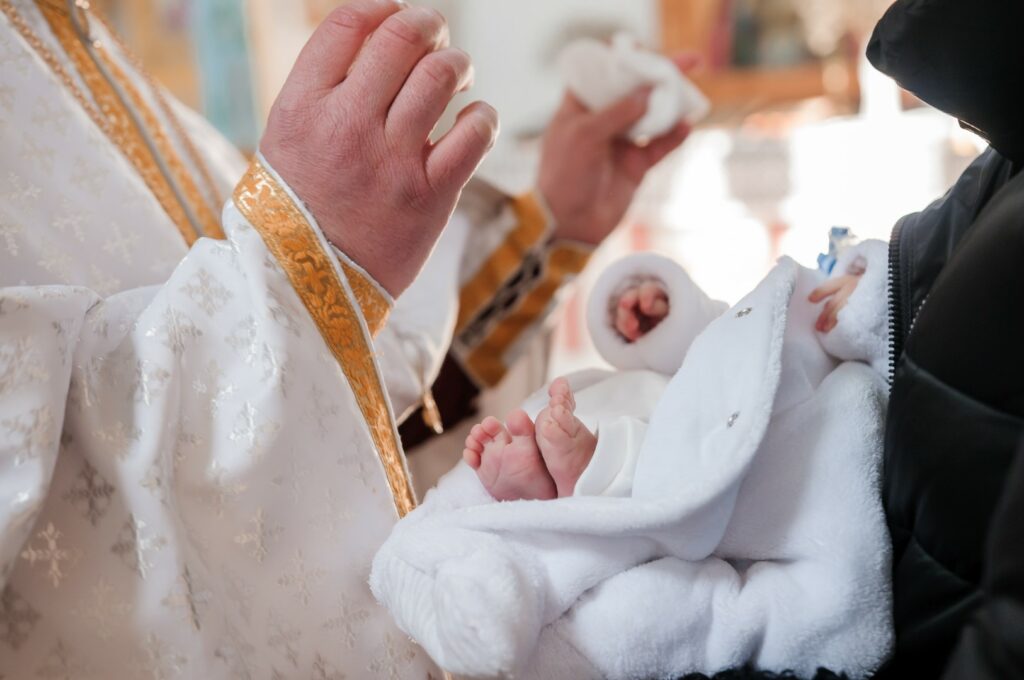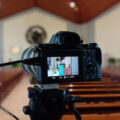Marketing baptisms in secularising Europe
Marketing baptisms in secularising Europe
Fewer infants are being baptised while the membership of Christian churches declines in secularising Europe. How do churches respond?
Crisis of infant baptisms in secularising Europe
Christianity is an implicit part of European culture but its role in people’s everyday life is fading. For example, in Sweden, less than a quarter of the population believes in God,[1] and in Europe, only 53% of the population identifies themselves with their religion.[2] Church membership is in decline too: in many European countries, traditional churches have lost their members in the last decades more than ever.[3] [4] [5] [6]
The diminishing meaning of religion is also reflected in the falling number of infant baptisms, which becomes apparent in the Nordic countries in particular.[7] [8] For instance, in the Helsinki metropolitan area in Finland, the proportion of baptised in the Evangelical-Lutheran church has fallen by more than 20 percentage points over the past ten years.[9] In the Evangelical Lutheran Church of Iceland, baptisms of church members’ children have dropped from 93% in 2000 to 48% in 2019.[10] When the norm of baptism falls in our societies, the question arises: what are the reasons to baptise or not to baptise a child?
To baptise?
Nowadays in secularising Europe, parents who baptise their infants are making even more considered and cognisant decisions than their predecessors.[11] In Finland, where the rates of infant baptisms are in a downturn, baptism is nonetheless seen as an important rite of accession to the community.[12] Yet, many parents consider that baptism has spiritual significance.[13] They believe that in baptism, the child will be left in ‘God’s care’.[14] Furthermore, in Finland, baptism is also seen as a meaningful tradition.[15] The meaning of baptism becomes particularly apparent in relation to godparents.[16] Godparents are highly appreciated and even though their religious meaning is somewhat fading, being a godparent is considered an honourable task.[17]
Or not to baptise?
If baptism is appreciated as a rite, tradition, and even as a spiritual deed, what are the reasons for not baptising, then? In the Nordic countries, one of the key explanations is simply the lack of faith.[18] Parents do not believe the teachings of the church,[19] and in some cases, they are not aware of the theological meaning of baptism.[20] Moreover, a growing number of parents are no longer members of the traditional churches.[21]
The second reason for not baptising is the concept of ‘free will’. More and more parents want their child to be allowed to decide about baptism by themselves and thus they decide not to baptise their newborn.[22] [23] As a result, a new trend has risen where parents ask the church to ‘bless, but not to baptise’ one’s baby.[24] The third reason behind the decision not to baptise – at least over the last two years or so – has been the global pandemic. In many countries, christenings have been challenged or even suspended because of the COVID-19 restrictions.[25] [26] [27]
Marketing religion? Seeking the growth of baptisms
In Nordic Europe, the Lutheran national churches have not faced the ‘crisis of baptism’ with empty hands. Indeed, they are now responding with a joint project called ‘Baptism in times of change’, which seeks to explore how baptisms could be ’marketed’ in changing environments.[28] In Finland, the marketing of baptisms becomes manifested in media, where the church advertises new possibilities to perform a baptism in numerous ways. For example, in Helsinki, baptisms are offered at the shopping centre to make the service easier.[29] Some parishes are offering cake and coffee free of charge for the baptising families to reduce the stress of holding a party.[30] The baptism dress is advertised as available for loan,[31] and some parishes organise free ‘baptism days’ for families on their own premises to lower the threshold for christenings.[32] Despite COVID-19 restrictions, the church communicates that streamed baptisms are experienced as warm and communal occasions.[33]
The future of baptisms?
Overall, it seems that churches are well aware of the low demand for their baptism services. The question of the crisis of infant baptism remains still open. It will be seen whether the ‘consumers’ will change their behaviour as a result of enhanced marketing. The future will thus show us whether infant baptism will experience another boom or not.
Our team of analysts conducts research on topics relating to religion and society. In the past month, the topics of traditions, tension, COVID-19, and leadership were trending. Find out their relationships on the EARS Dashboard.
Sources
[1] Belonging without believing: ‘Cultural religion’ in secular Sweden.
[2] Values and identities of EU citizens Report.
[3] Eroa kirkosta -sivusto on murentanut kirkon asemaa jo 18 vuotta – jäsenkato on vienyt miljardin seurakuntien kassasta.
[4] Mostly true: “Catholic church loses members – Europe-wide”.
[5] Germany; Catholic church sees record drop in membership.
[6] Fortsatt medlemstapp för Svenska kyrkan.
[7] Nordic churches explore “baptism in times of change”.
[8] Luterilainen ja ortodoksinen kirkko nostivat yhdessä esiin kasteiden kolminkertaisen kriisin.
[9] ”Kaste on valaistumisen kylpy” – Jyri Komulaisen mielestä kirkko voisi hyödyntää oman perinteensä eksotiikkaa.
[10] Nordic churches explore “baptism in times of change”.https://www.kirkkojakaupunki.fi/-/-kaste-on-valaistumisen-kylpy-jyri-komulaisen-mielesta-kirkko-voisi-hyodyntaa-oman-perinteensa-eksotiikkaa#3191bf1a
[11] ”Kastettuna en ole juureton” – Vantaalla perheitä houkutellaan Kastepäivään ilmaisella täytekakulla.
[12] Onko kummi vain lahja-automaatti ja kaste pelkkä perinne? Osalle suomalaisista kasteella on yhä iso hengellinen merkitys.
[13] Ibid.
[14] Ibid.
[15] Ibid.
[16] Ibid.
[17] Moni kastettava saa kummiksi myös jonkun kirkkoon kuulumattoman – pappi Marjut Mulari toivoo, että kirkko vähentäisi byrokratiaa ja antaisi ”kaikkien kummien kukkia”
[18] Nordic churches explore “baptism in times of change”.
[19] Ibid.
[20] Luterilainen ja ortodoksinen kirkko nostivat yhdessä esiin kasteiden kolminkertaisen kriisin.
[21] Nordic churches explore “baptism in times of change”.
[22] Ibid.
[23] ”Kastettuna en ole juureton” – Vantaalla perheitä houkutellaan Kastepäivään ilmaisella täytekakulla.
[24] Nordic churches explore “baptism in times of change”.
[25] Igreja Católica suspende casamentos e baptismos, mas missas continuam com presença de fiéis.
[26] No crying in Sistine Chapel as baptisms cancelled amid COVID.
[27] Koronakevään vauvoja kastetaan nyt – Espoossa kasteita 65 prosenttia tavallista elokuuta enemmän.
[28] Nordic churches explore “baptism in times of change”.
[29] Jäivätkö ristiäiset pitämättä koronan tai väsymyksen vuoksi? Pyry Paananen kastaa lapsia kauppakeskuksessa marraskuussa.
[30] ”Kastettuna en ole juureton” – Vantaalla perheitä houkutellaan Kastepäivään ilmaisella täytekakulla.
[31] Helpot ristiäiset onnistuvat Kastepäivässä – seurakunta tarjoaa täytekakkukahvit Espoossa.
[32] Kastepäivä merenrantahuvilassa Laajasalossa mahdollistaa vaivattomat ristiäiset vauvalle tai isommallekin lapselle.
[33] Striimatuissa ristiäisissä etävieraat voivat osallistua juhlaan rukoillen, Raamatun tekstejä lukien ja laulaen: ”Se tuntui jopa tosi yhteisölliseltä”.






